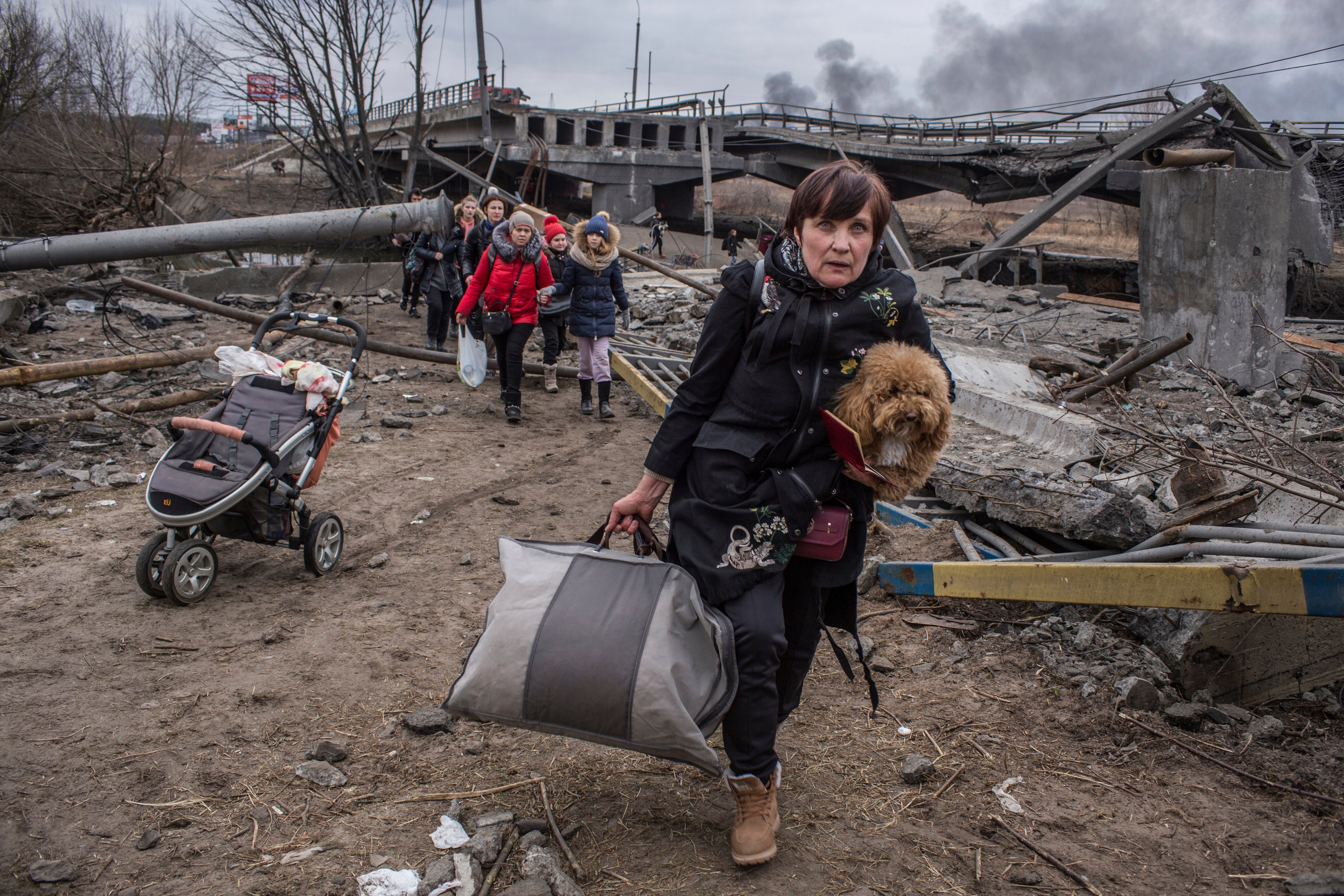UN court hearings to open in Ukraine case against Russia
With Russian forces pounding Ukrainian cities with rockets even as they announce a cease-fire to allow civilians to flee some areas, lawyers representing Kyiv and Moscow are facing off at the United Nations’ top court in a legal bid to halt the devastating war

Your support helps us to tell the story
From reproductive rights to climate change to Big Tech, The Independent is on the ground when the story is developing. Whether it's investigating the financials of Elon Musk's pro-Trump PAC or producing our latest documentary, 'The A Word', which shines a light on the American women fighting for reproductive rights, we know how important it is to parse out the facts from the messaging.
At such a critical moment in US history, we need reporters on the ground. Your donation allows us to keep sending journalists to speak to both sides of the story.
The Independent is trusted by Americans across the entire political spectrum. And unlike many other quality news outlets, we choose not to lock Americans out of our reporting and analysis with paywalls. We believe quality journalism should be available to everyone, paid for by those who can afford it.
Your support makes all the difference.As Russian forces pound Ukrainian cities with rockets despite announcing a cease-fire to allow civilians to flee some areas, lawyers representing Kyiv and Moscow face off Monday at the United Nations' top court in a legal bid to halt the devastating war.
The International Court of Justice is opening two days of hearings at its headquarters, the Peace Palace, into Ukraine's request for its judges to order Russia to halt its invasion. Ukraine is scheduled to present its arguments Monday morning and Russia can respond Tuesday.
Ukraine has asked the court to order Russia to “immediately suspend the military operations” launched Feb. 24 “that have as their stated purpose and objective the prevention and punishment of a claimed genocide" in the separatist eastern regions of Luhansk and Donetsk.
A decision is expected on the request within days, though it remains to be seen if Russia would abide by any order the court might issue.
If the court were to order a halt to hostilities, “I think the chance of that happening is zero,” said Terry Gill, a professor of military law at the University of Amsterdam. He noted that if a nation does not abide by the court's order, judges could seek action from the United Nations Security Council, where Russia holds a veto.
The request for so-called provisional measures is linked to a case Ukraine has filed based on the Genocide Convention. Both countries have ratified the 1948 treaty, which has a clause allowing nations to take disputes based on its provisions to the Hague-based court.
Kyiv argues that Moscow's claims of genocide by Ukraine in Donetsk and Luhansk thatPresident Vladimir Putin used as a pretext for his invasion are fabricated.
“Ukraine emphatically denies that any such genocide has occurred, and that the Russian Federation has any lawful basis to take action in and against Ukraine for the purpose of preventing and punishing genocide,” the country said in its claim to the court.
Ukraine's nine-page legal filing launching the case argues that “Russia has turned the Genocide Convention on its head” by making a false claim. It adds that “Russia’s lie is all the more offensive, and ironic, because it appears that it is Russia planning acts of genocide in Ukraine.”
The success of Ukraine's request will depend on whether the court accepts it has “prima facie jurisdiction” in the case, which is not a guarantee that the court ultimately would proceed with the suit. Cases at the International Court of Justice typically take years to complete.
Regardless of the outcome of the hearings Monday and Tuesday, they give Ukraine another platform to air grievances about Moscow's invasion.
“It’s part of, I think, an overall diplomatic strategy to try to put maximum pressure on Russia,” said Gill.
___
Follow the AP’s coverage of the Ukraine crisis at https://apnews.com/hub/russia-ukraine